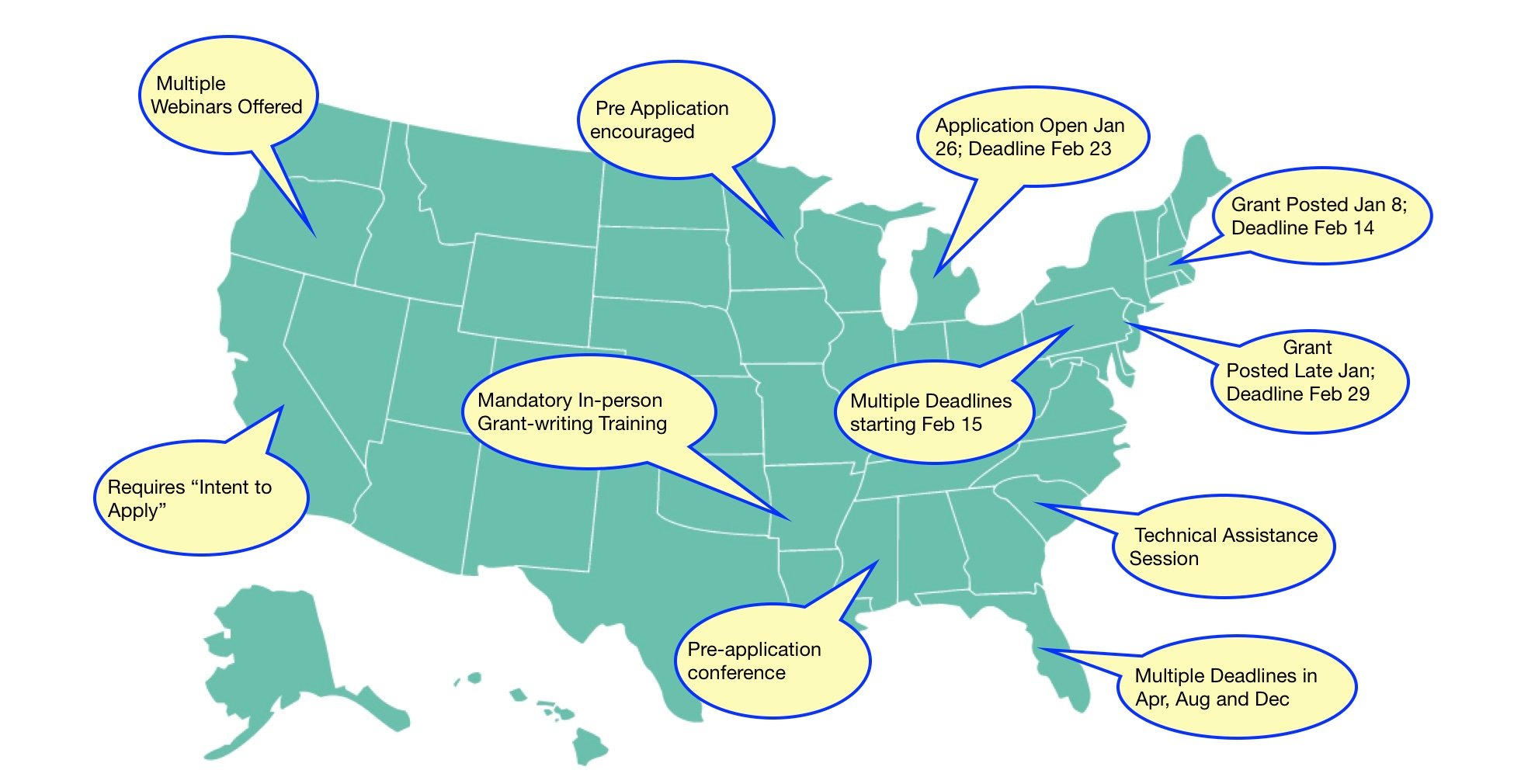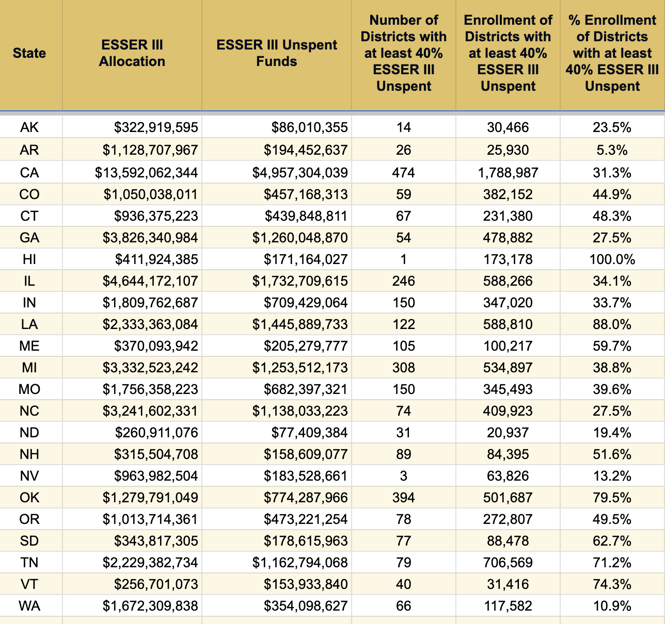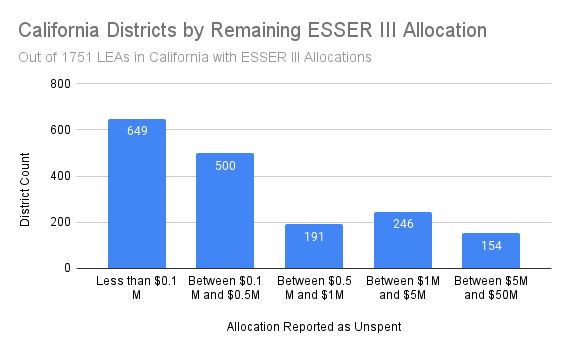Please click here to receive a recording of Burbio's recent 20 minute webinar "State-Level Funding Sources for K-12 Districts."

1. Last week Burbio rolled out our State-Level Funding Tracker, which features state-level funding sources from all 50 states. Grants are broken down by category with information such as eligibility, deadlines, funding amounts, and more. The service includes a sortable dashboard plus an email alert system that notifies clients as new opportunities appear. The involved application process of many grants make information particularly time-sensitive. Among the characteristics:
- Funding opportunities are frequently posted with very short turnarounds. Among many examples:
- Other funding sources have multiple deadlines:
- Pre-applications or "Intent to Apply" are a frequent part of the grant processes and act as early deadlines:
- The application for Minnesota’s Native Language Revitalization Grants is not yet available but districts are “highly encouraged” to fill in the pre-application prior to applying
- In Mississippi the Farm-to-School Mini-Grant had a pre-application conference January 24th that applicants were "highly recommended" to attend
- Pre-grant webinars and information sessions are frequently offered:
2. In mid-January the Federal government issued further guidance on late liquidation of ESSER III funds. Extensions would allow an additional 14 months to disburse the funds, out to March 2026.
As we head into the final full year of ESSER III, we wanted to review recent reporting on spending to date. The chart below summarizes district-level ESSER III spending for 23 states that have reported in the last 60 days. In addition to total unspent funds, we identify the number of districts that still have at least 40% of ESSER III funds unspent, as well as the percentage of state student population in those districts. A few notes:
- The cumulative percent of "unspent" funds from the 23 states below is 38.75%. Projected out to the $110 billion allocated to LEAs under the legislation, that would translate to over $40 billion remaining nationally as of this recent reporting window.
- Over 2,700 districts in the states below report having over 40% ESSER funds unspent as of the reporting date. The cumulative percentage of students in those districts is 37.5%.

Burbio provides clients district-level detail on unspent funding, and matches the data to NCES codes to allow for integration into go-to-market processes. We also provide ESSER III plans representing over 80% of K-12 students, plus K-12 strategic plans, LCAPs, school board meeting monitoring, state grant information, and more. A few things we have learned working with suppliers that are relevant as ESSER spending enters its final phase:
- Outside of district superintendents and top finance officials, a material percentage of district decision makers have not read their district's ESSER III plan. While plans were posted on district websites, we see little evidence they were circulated within districts, and it should not be assumed a district contact knows what is in them.
- Conversely, suppliers who review districts ESSER III plans, which are unusually clear by K-12 reporting standards, have a much more informed discussion with district counterparts. The same is true for reviewing the district strategic plan (or LCAP) and recent school board meeting minutes.
3. California recently reported its ESSER III "actual" spending through 12/31/23. As noted above, the state is reporting 36.5% of funding unspent, totaling just under $5 billion remaining. The chart below highlights the number of districts with available funds. Note 154 districts have between $5 million and $50 million reported unspent:
